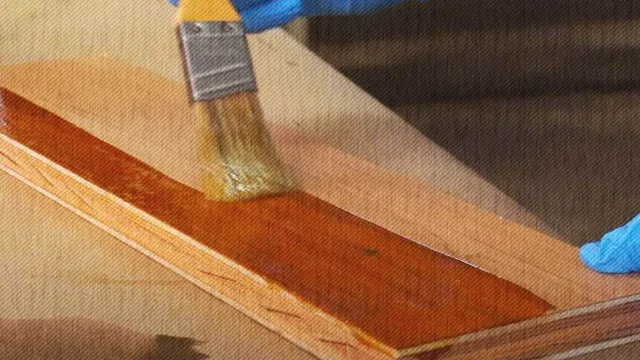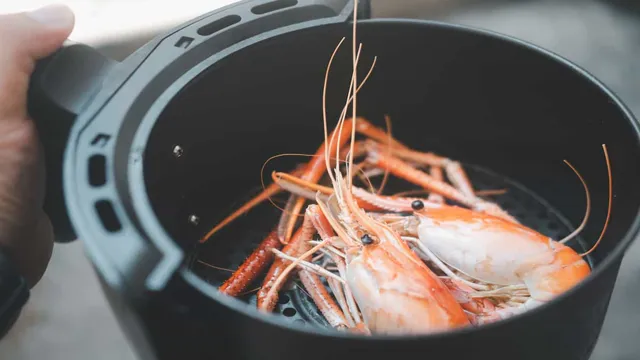Water is one of the most essential natural resources on earth, and its importance cannot be overstated. It is not only necessary for human survival, but also plays a vital role in the growth and development of every living organism. From maintaining our bodily fluids to generating energy, water is critical to both our physical and mental health.
Without it, our world would be a barren wasteland. In this blog post, we explore the significance of water and its impact on the environment, human health, and daily life. So grab a glass of water and let’s dive in!
Benefits of drinking water
Can you put water in? Absolutely! Drinking water has numerous benefits for your overall health and well-being. Firstly, staying hydrated with water can help maintain proper bodily functions such as regulating body temperature, aiding digestion and removing waste from the body. Secondly, water can help improve mental clarity and focus by keeping your brain functioning at its best.
In addition, drinking water before a meal can help with weight management as it can help reduce the amount of food one eats. Lastly, drinking water can also help improve skin health by keeping it hydrated and flushing out toxins. So the next time you’re feeling thirsty, reach for a glass of water and enjoy all the benefits it provides.
Hydration is key to health
Staying hydrated is absolutely crucial for good health, and drinking enough water throughout the day is one of the easiest ways to ensure you’re taking care of your body. Replenishing the fluids our body loses through everyday activities – like sweating, urinating, and breathing – helps keep our organs functioning properly, regulates our body temperature, and even helps with digestion. Additionally, drinking water can aid in weight loss, as it can help us feel fuller and avoid overeating.
Drinking enough water can even have cosmetic benefits, such as improving skin texture and reducing the appearance of fine lines. So next time you’re feeling thirsty, don’t hesitate to grab a glass of water – your body will thank you for it!

Water aids digestion
Drinking water is vital for our overall health, and its benefits cannot be overstated. One of the most significant benefits of drinking water is its role in aiding digestion. When we consume food, water helps to break down the components of the food to make it easier for our bodies to absorb the necessary nutrients.
Water also allows the body to maintain proper bowel movements, preventing constipation and other gastrointestinal issues. In addition, drinking water before a meal can help to decrease appetite, leading to reduced calorie intake and potential weight loss. Staying hydrated is crucial for optimal digestive function and can also help with skin health and blood flow.
So, let’s not forget to drink enough water daily and keep our bodies running smoothly.
Can you put water in?
Many people might wonder if it’s safe to put water in their appliance or device. The answer to this question is often dependent on the type of device or appliance, as well as the manufacturer’s instructions. Some devices or appliances are not designed to handle water, and doing so could lead to damage or even electrical shock.
However, other products, such as humidifiers or steam cleaners, specifically require water to operate. It’s essential to read and follow the manufacturer’s directions carefully and never attempt to add water to a product unless the instructions explicitly say it’s safe to do so. Ensuring that water only goes where it’s intended in a product can help prevent any accidental damage or injuries.
So, the answer to the question “Can you put water in?” is that it depends, but when in doubt, always check the manufacturer’s instructions to avoid any issues.
Understanding the question
If you’re wondering whether or not you can put water in a certain container or appliance, there are a few factors to consider. First, you’ll need to determine if the material of the container or appliance can withstand water. For example, if you’re using a plastic container, it may not be safe to put hot water in it as the plastic can melt and release harmful chemicals.
Additionally, some appliances may have specific instructions on whether or not water can be used with them. For instance, a blender may have a maximum fill line for liquids, and exceeding that line could cause the blender to malfunction. It’s important to always read the instructions and labels on your containers and appliances before using them to ensure safety and optimal functioning.
In terms of the main keyword, “water,” it is utilized throughout the paragraph in various contexts.
Common uses of water
Water is an essential element for our survival, and we use it in numerous ways every day. From drinking water to cooking, cleaning, bathing, and even in powering hydroelectric turbines, water plays a vital role in our daily lives. Whether you’re filling a swimming pool or watering your plants, water is often our go-to option.
You can put water in almost anything, be it a glass, bottle, or a bathtub. We can also use water to generate power by harnessing the flow of water in rivers and streams. Water is also used in industrial processes such as manufacturing goods, cooling machinery, and processing food.
In summary, water has a myriad of uses, and it’s an essential element in all aspects of our lives.
Types of water to use
Water is the most critical ingredient when it comes to making coffee. Different types of water affect coffee differently, so it’s essential to consider the water you use. You can use tap water, bottled water, or filtered water in your coffee maker, but the quality of your water will impact the taste and the aroma of your coffee.
Tap water often impacts coffee taste due to its mineral content that can affect the flavor. Bottled water is an excellent choice since it provides more control over the water quality. Filtered water is also an excellent option since it effectively eliminates any contaminants that might affect the coffee’s taste.
Therefore, it’s recommendable to use bottled or filtered water in your coffee if you’re looking to improve the quality of your java. By using better water, you’ll experience a better coffee experience, a richer taste, and a fuller body.
Tips for using water
Can you put water in your car’s gas tank? The answer is a resounding no! However, there are many other ways to use water that can be beneficial. For instance, you can use water to clean your car’s windows, or add some to your windshield wiper fluid tank. When washing your car, it’s important to use the right amount of water – too little, and you may not get it clean; too much, and you may risk damaging the finish.
Additionally, using a microfiber cloth and a dedicated car wash soap can help to ensure a scratch-free finish. Another great use for water is in your home’s garden. Water your plants and lawn in the early morning or evening, when evaporation is lower and your plants can absorb more of the moisture.
With a little bit of care and attention, you can put water to good use in a variety of ways!
Do’s and don’ts of water use
When it comes to using water, there are some important dos and don’ts that should be kept in mind. To start with some of the dos, it’s important to conserve water wherever possible. This can be done by taking shorter showers, fixing any leaky faucets, and using a broom instead of a hose to clean outdoor areas.
Another important step is to be mindful of what is put down the drain. Avoid dumping harmful chemicals or substances that can contaminate water sources. On the other hand, there are also some important don’ts to remember when it comes to water use.
First and foremost, it’s important not to waste water. Things like letting the water run while brushing teeth or washing dishes can quickly add up and lead to unnecessary water waste. Another important don’t is to avoid putting grease or harmful chemicals down the drain.
These can cause major problems for water treatment facilities and contaminate the surrounding environment. By following these tips, we can all do our part to conserve and protect our precious water resources.
Using water efficiently
Using water efficiently is a crucial aspect of sustainable living. By being mindful of our water usage, we can conserve this precious resource and reduce our overall impact on the environment. There are plenty of small but impactful changes we can make in our daily routines to use water more efficiently.
For instance, turning off the tap when brushing our teeth or shaving can save several gallons of water every day. Fixing leaky faucets or toilets can also help save hundreds of gallons of water per month. Using low-flow showerheads and toilets can significantly reduce our water usage, as these fixtures use far less water than their traditional counterparts.
Additionally, we can reuse greywater from activities such as washing dishes or clothes to water plants or gardens, reducing our overall water consumption. By implementing these simple measures and being more mindful of our water usage, we can all do our bit in conserving this vital resource and protecting the planet for future generations.
Conclusion
In conclusion, the question of whether or not you can put water in [insert item here] is a common one, but the answer is simple: if it’s meant to hold liquid, then yes, go ahead and put some water in there! Of course, if it’s a toaster or a car engine, you may want to think twice. Remember, when in doubt, consult the manufacturer’s instructions and use some common sense. After all, you wouldn’t want to create a wet and wild mess or a not-so-funny joke.
“
FAQs
Can you put water in a gasoline engine?
No, putting water in a gasoline engine can cause serious damage to the engine and potentially even lead to engine failure.
Can you put water in a car’s radiator?
Yes, you can put water in a car’s radiator, but it is important to also add antifreeze to protect the engine from freezing in colder temperatures.
Can you put water in a battery?
No, putting water in a battery can actually damage the battery and reduce its lifespan. Instead, batteries that require maintenance should be refilled with distilled water.
Can you put water in a propane grill?
No, putting water in a propane grill can damage the grill’s burners and potentially create a safety hazard. Instead, the grill should be cleaned regularly with a wire brush to remove any debris.
